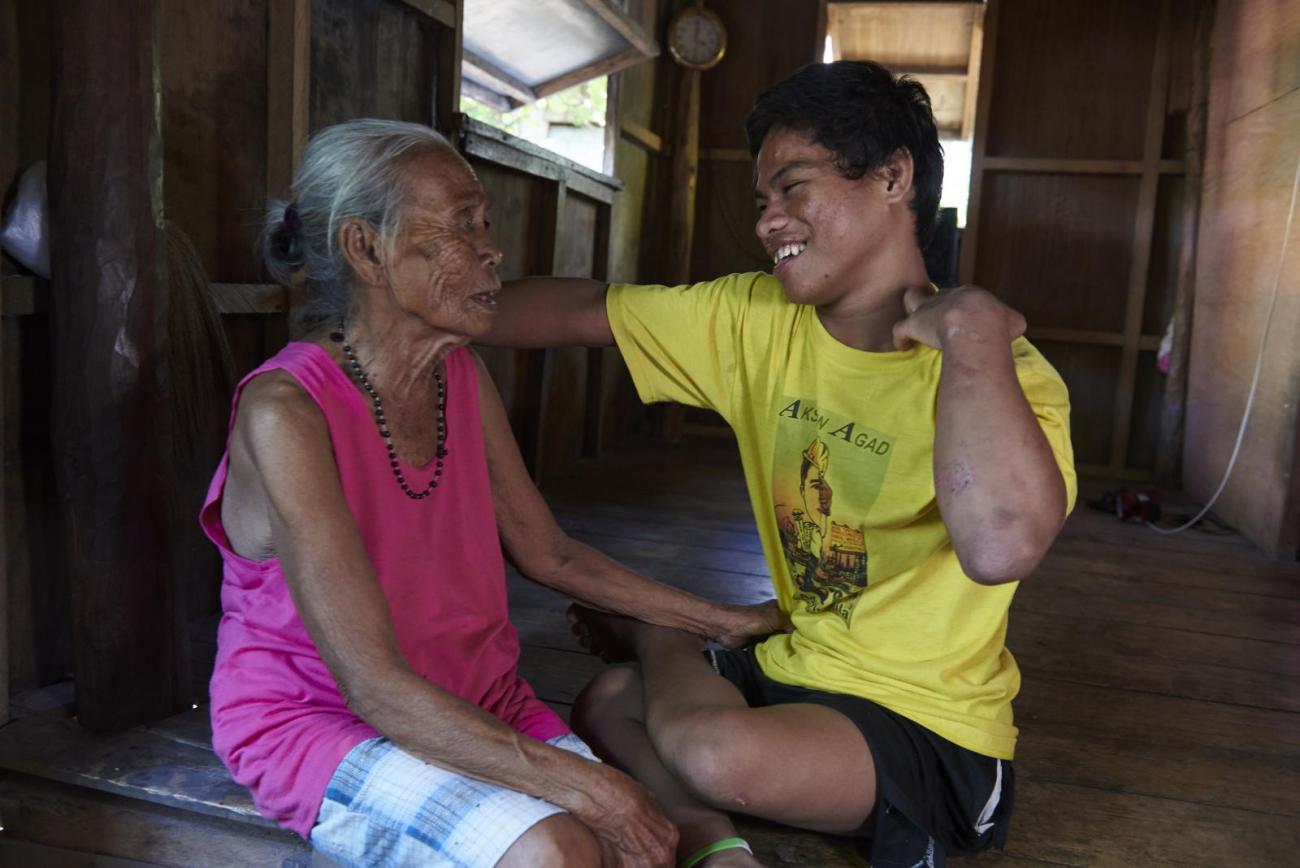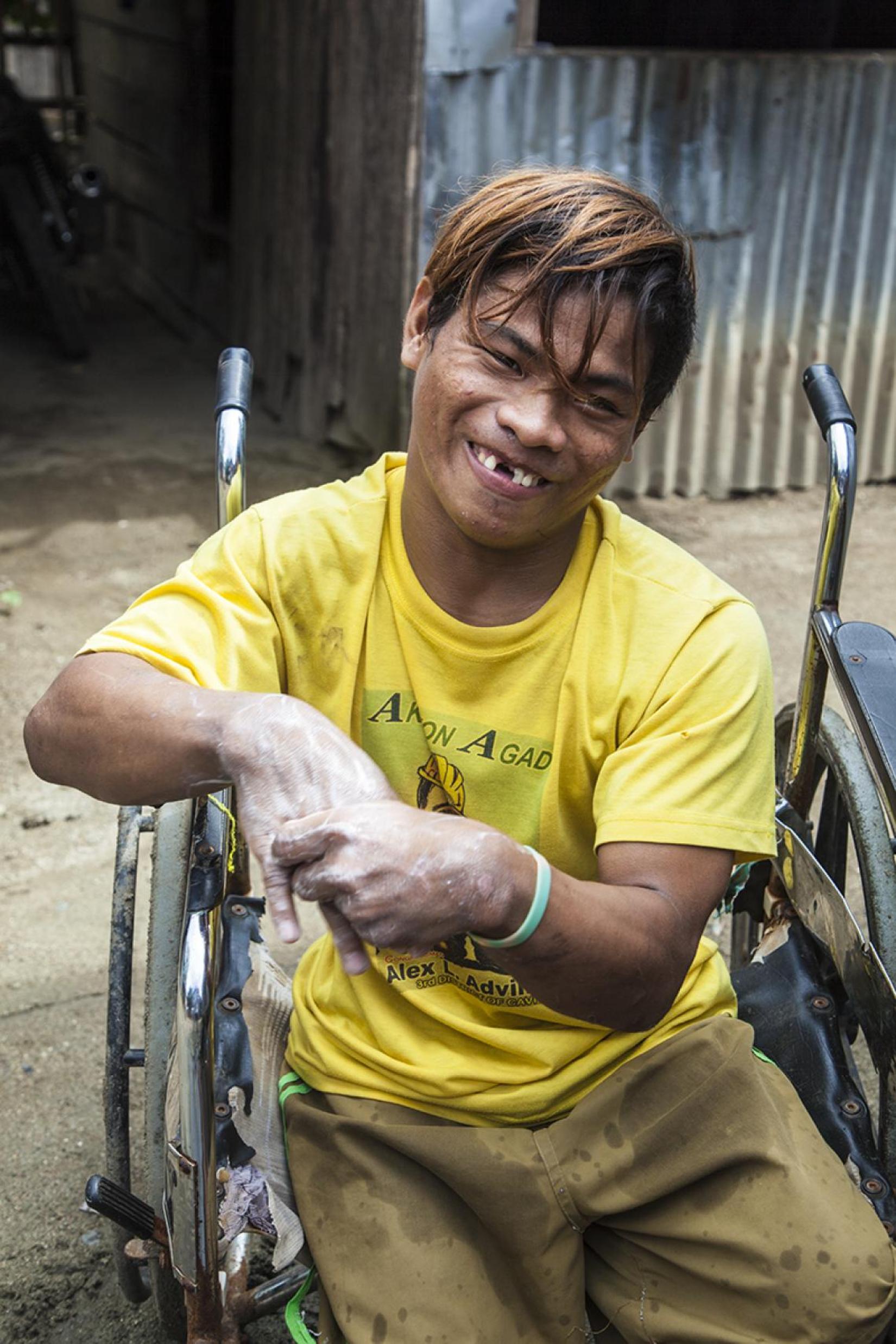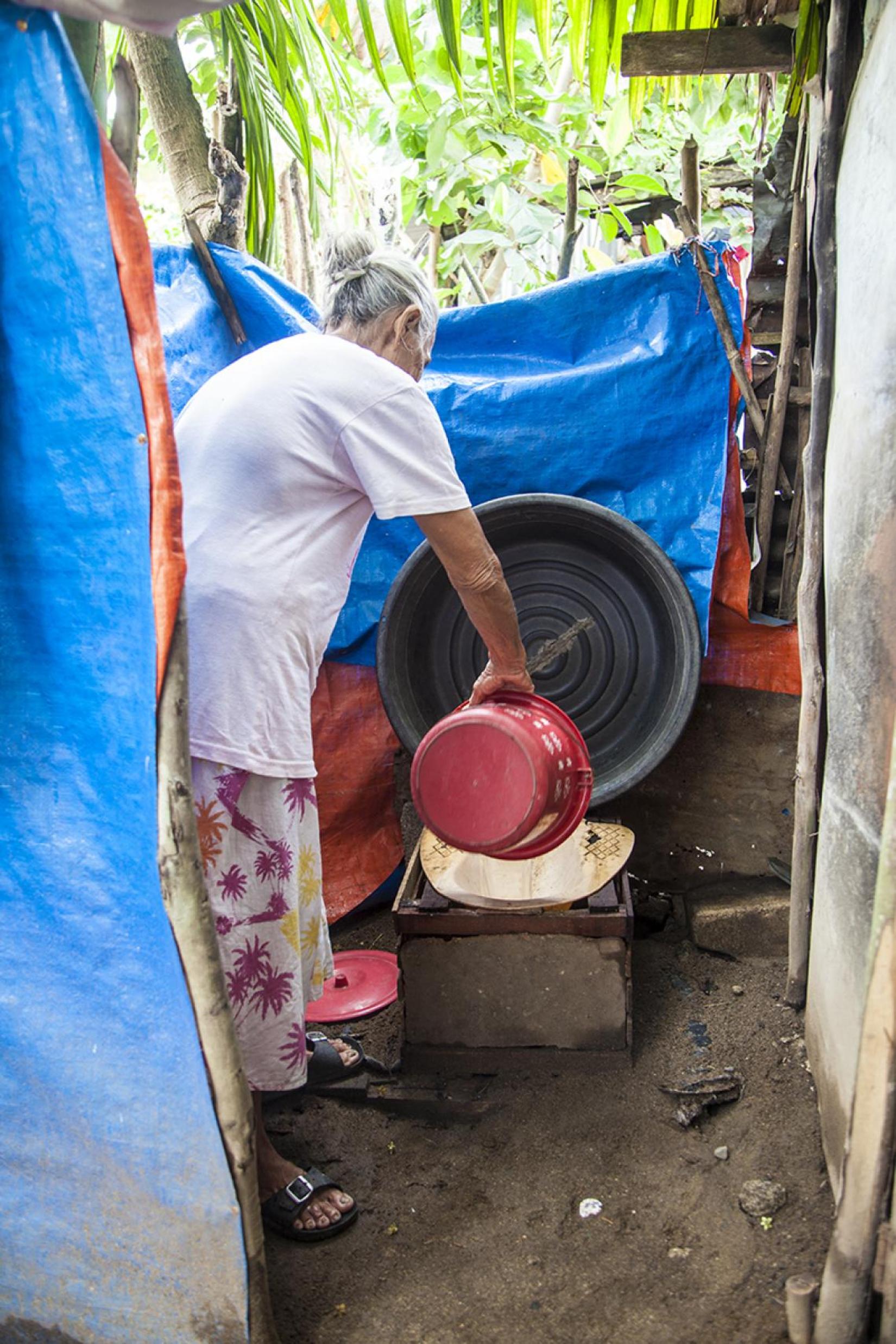How a small toilet can make a big difference

Ray, a person with disability, discovers that life can become a lot easier with just an accessible toilet
At 23, Ray Capoquian has simple dreams. “All I want is that I don’t get sick, and have enough food every day,” he says.
Born with a disability affecting his legs, Ray had to stop schooling at Grade 1. His grandmother, 76-year-old Trinidad, takes care of him at home and shares how difficult it was for Ray to move around in school.
“Nobody can look after him when he’s in school in case he needs to go to the toilet from the classroom,” she says.
The experience pushed the family to make the difficult decision of pulling Ray out of school, resulting to poor literacy. But this hasn’t stopped Ray from being a jolly person. He doesn’t mind his disability, which he has learned to live with.
Ray is the youngest child in a family whose father is sickly and unable to support even himself. His mother now lives in Manila with his siblings and works as a household helper. His only communication with her is through a borrowed cell phone.
Their difficult situation has left his mother no other choice but to leave him in the care of his maternal grandparents, Trinidad and Julio, who are both in their late 70s. Julio is still able to walk and at his age, still serves as a barangay official in their sitio. Ray’s grandparents often wonder how he would survive when it was time for them to go.

Trying to live independently
Ray’s disability has prevented him from doing many things. While he can stand up, he cannot walk properly and has difficulty using his hands. Hesitant to be a burden to anyone, he has learned to take care of himself. He could go down their house’s three flights of stairs when he needs to take a bath in the neighborhood water pump a few meters away from their house. To reach the pump, Ray uses an old wheelchair provided by a kind donor.
“The hardest part for me is when I need to do my daily necessities, he says.
“Before, when we did not have a toilet, we would just go anywhere to do what we had to do.”
“Sometimes, we just go to the nearby river, but someone has to accompany me all the time, such as my brother or sister,” he adds. “It was difficult especially at night, or when it was raining. My life became even harder when they left for Manila and only my grandmother was left to take care of me.”
Stopping open defecation
In 2018, the local government of Mapanas rolled out the Philippine Approach to Sustainable Sanitation (PhATSS) program supported by UNICEF which helped the family build a small toilet in their home. Through PhATSS, the people at Mapanas learned how dangerous it was to live in unhealthy and unsanitary surroundings. They saw how a simple fly could hop from their open feces and right into their food, carrying harmful bacteria and germs.
Mapanas, a coastal town in Samar, a province south of Manila. It has a population of about 14,000, with 13 barangays. In 2016, the Mapanas government issued an ordinance mandating no open defecation in the town, and to date it has achieved Municipal Zero Open Defecation (ZOD) status , substantially reducing overall disease rate, especially diarrhea. The town also now enjoys clean, sanitary, and healthy surroundings.

The toilet in Ray’s house has greatly helped Lola Trinidad maintain cleanliness and sanitary conditions of their surroundings. UNICEF Philippines/2019/George Cabig
For Ray’s grandmother, the small toilet has been a big help in keeping the surroundings clean and sanitary. To make things easier for both him and his grandmother, Ray uses a chamber pot in his bedroom where he could do his daily necessities without having to ask for help to go to the toilet.
The toilet has made a big difference in in their lives because it made things very accessible to him, and convenient for his aging lola. While Ray’s future remains uncertain, he is happily living his life on a daily basis with his lola and lolo, watching his daily telenovelas and patiently waiting for that much-longed for phone call from his mother thousands of kilometers away.
November 19 is World Toilet Day. This year, UNICEF Philippines and the Department of Health, is leading the World Toilet Day Celebration in the country, with the theme “Toilets for All: Leaving No One Behind”
As part of the World Toilet Day celebration, the Department of Health (DOH) has launched the DOH Administrative Order 2019-0054 institutionalizing the implementation of the Philippine Approach to Sustainable Sanitation (PhATSS) Program nationwide. PhATSS has been developed and pilot tested by UNICEF in selected pilot areas in the country since 2014.


